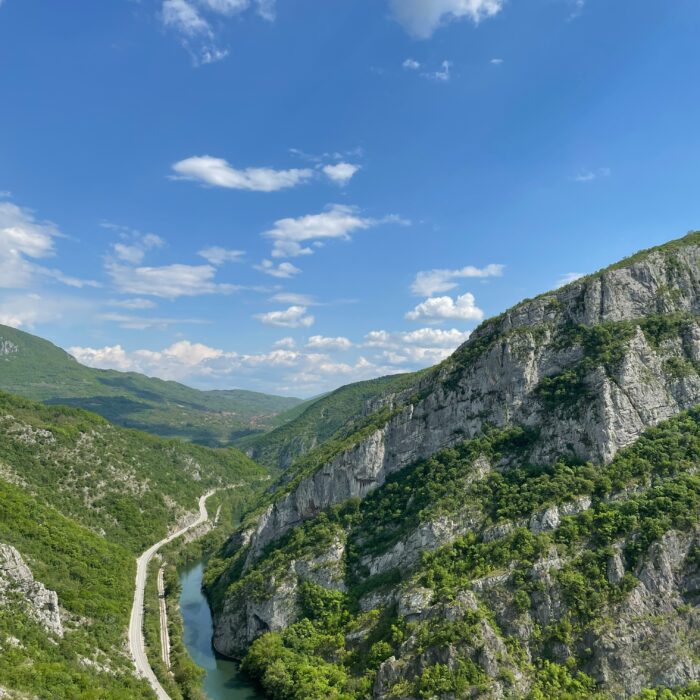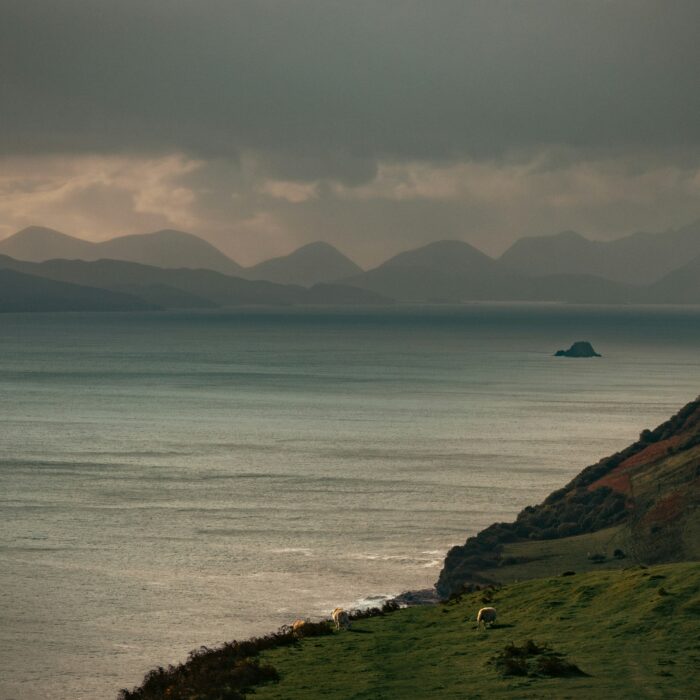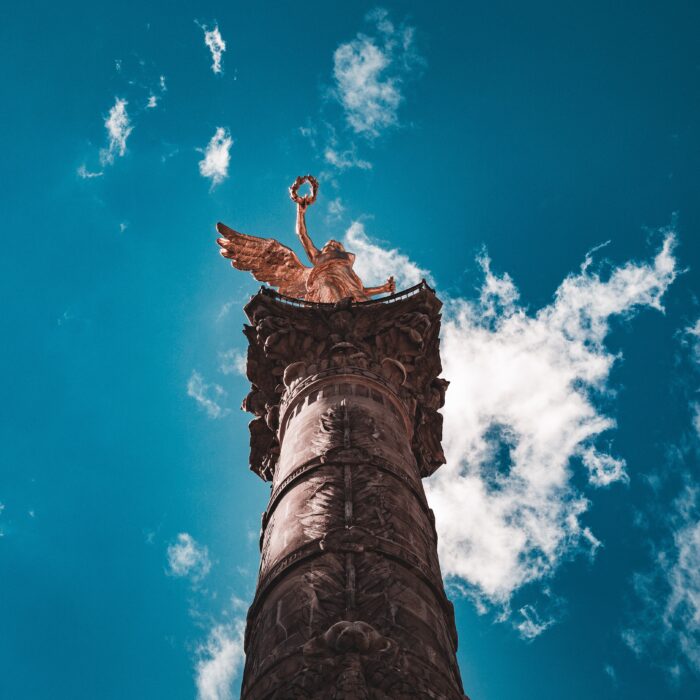You have no items in your cart. Want to get some nice things?
Go shopping
1.
I started playing contact rugby four years ago, and my first tackle has the personal significance of a child’s first steps. I remember at my very first training, I was on the pitch with virtually no clue of what to do when a big girl came charging at me with a ball tucked under her right arm. In my memory, she is a faceless menace. There was a flash of fear, and a sudden, keen recognition that I had two choices—either step up and take the plunge, or get trampled.
No one could help me. What happened next was instinctive, and perhaps for this reason I don’t remember the actual tackle itself. But my body retained a vague sense of impact, like a memory imprint. Like a third party viewing the event from above, I see someone running towards me. There’s a brief hesitation, then I take baby steps and the contact occurs.
It’s the same with catching a high ball. Someone kicks, and the ball soars into the air, spinning at the height of about four storeys before gravity exerts its presence. Then the ball comes hurtling down like a comet. I’ve realized over the years that if I allow doubt to creep into my mind at any one point, the fear of failure will infuse my body and I’m almost guaranteed not to catch the ball.
2.
A few months ago, as my family was preparing for bed, the phone rang. It was the maid who worked at my grandparents’ home, two blocks away. My grandmother had fainted, and was conscious but in a dazed state. We needed to bring her to the hospital. I changed and went to pick her up, while my mother drove the car to meet us.
I hurried over to her house, wondering why things always happen at night, even though in Singapore we have twelve hours of light and an equal period of darkness. But somehow night seems to have some mysterious power—a magnet of misfortunes.
As my grandmother and I stepped out of the lift, we saw a dead cockroach on the ground.
“It’s dead,” she said, with a voice so full of foreboding that it scared me.
I gently steered her away from the upturned insect, with its brown monochrome body and legs pointed like middle fingers at the sky. Something had spooked me. It wasn’t just the cockroach, my seventy-five-year-old grandmother’s sudden collapse, or her innocuous remark. It was how that combination was trying to click in my mind to make me acknowledge something I was desperately trying to reject.
I led my grandmother to the curbside where my mother had parked the car, her face bloated with fatigue and worry, peering out from the window like a pale moon. My mother wasn’t in the best of health herself. She was slated to go for a spinal operation two weeks later as her spinal discs had compressed her nerves. She couldn’t walk or stand for long without being in pain. But stubbornness being a trait in my family, she insisted on driving.
“Well, you can’t drive,” she’d said, with a tinge of accusation.
I am twenty-four years old and still do not have a driving license. In a country where cars are expensive and high-maintenance, I hadn’t seen a reason why I should bother to get one. But the truth is, I’m afraid of the idea of driving and carrying the responsibility of ferrying people safely from point A to point B. I thought that it was only a matter of time before I would hit a tree, a pole, or a person. When I imagine myself driving a car, the train of thought inevitably ends up with an accident. The car skids along the highway and collides with a huge tree or truck, then flips over, like the dead cockroach outside the lift.
On the way to the hospital, I couldn’t stop thinking about that cockroach. In Kafka’s Metamorphosis, a man named Gregor Samsa wakes up one day and discovers that he has turned into a cockroach (or vermin). While the story can be read in many ways, an interpretation that comes to my mind is that we live in a universe that functions without any system of order or justice; the absurdity of the world lies in the fact that nothing is for certain—including when, and how, we die. And since death is an inevitable end for everyone, why live in perennial fear of it?
Like many people, I fear for the death of my loved ones, sometimes more than my own. When I was young, before my parents left home for work in the morning, I’d run out to bid them goodbye. To me, the word was like an invisible talisman that would serve to protect them from any misfortunes that day. I sincerely believed that if I kept up the routine, my parents would stay safe. I still remember my eyes snapping open at the loud, familiar thud of the wooden door closing, jumping out of bed and running out of my bedroom to the living room. I’d yank the heavy door open, peer out through the metal grates and shout goodbye as my parents were waiting for the lift.
There was a day when I overslept. By the time I woke up, it was almost ten and my parents had long left for work. A sense of uneasiness and fear pervaded me the whole afternoon, and it was only in the evening when my parents came home that I could heave a sigh of relief. If something had happened to them, it would have been my fault.
3.
One morning I woke up to the glorious sight of thick clouds, in varying shades of white and grey, drifting over the Hoang Lien Son mountain range in Sapa, Vietnam. Tendrils of fog twirled almost lovingly around the cluster of buildings that jutted out from the mountainside. The air was like a kiss to the skin. As the clouds passed by and obscured the sun, they shimmered, giving the illusion of a fullness that threatened to explode.
I was awed. But as I stood at the balcony of my guesthouse, drinking up the view, my emotions raced from an exuberant, almost absurd happiness, to a sinking feeling of dread.
It is strange how moments of love and beauty can make me suddenly afraid of death. I thought of all the views like these I’d miss if I weren’t present in the world. There was the fear of losing out, of not being able to participate in the small glories of the world that validate my existence. The world doesn’t know fear, but paltry humans do. We greedily lap up everything that comes along, thinking that the experiences we soak up in our bodies make us better human beings and immortal in some way.
4.
My previous neighbor had many cats. They swarmed her house and stalked the corridors of the eighth floor where we lived. The whole area stank of cat pee, and on days that were particularly bad, we had to close the front door to keep out the smell. She didn’t seem perturbed, though, and I marveled at how her nose had been desensitized to the stench. Or it may be possible that she simply liked the smell of urine. Or that Love has a blocked nose.
It is said that cats have nine lives, and also that cats always land on their feet. Of course, these are myths, but it still came as a minor surprise one day when another neighbor informed me—almost gleefully—that one of the cats had jumped to its death from the window.
‘Which one?’ I asked.
She shrugged. ‘It’s one of those that are always locked inside. Maybe trying to escape,’ she said.
‘Why? It’s living a good life. There’s always food, shelter…’
‘Maybe it got bored. No fear, I guess,’ my neighbor said.
5.
It was almost pitch dark, save for the headlights of vehicles. I was en route from Medan airport to Lake Toba, which was about five hours away by car. Like most Indonesian drivers, the man at the steering wheel was impatient. He had nerves of steel, good driving skills, and was familiar with the route. He spoke basic English, and I wondered if he was simply acting dumb when the three Americans I shared the car with beseeched him to slow down ‘just a little’.
So the car wound left and right, overtaking one car at a time. It was a two-way narrow mountain road, with barely enough space for two cars to pass side by side. A dense forest extended beyond the two sides of the road. There was a truck in front of us, and in his attempt to overtake the vehicle, my driver swerved out to the adjacent lane, where another car was headed straight at us, probably at a hundred miles an hour. Just seconds before a fatal collision, he jerked the steering wheel and the car swerved back neatly, in front of the truck. The truck driver sounded his horn in annoyance. All these frayed nerves just to get in front of a truck that wasn’t exactly moving slowly.
My American companions laughed nervously and tried to make light-hearted comments. The woman sitting behind me took out a copy of Fifty Shades of Grey and a small reading light. ‘I’m gonna try and distract myself,’ she said.
The American guy seated beside the driver was a huge, overweight man with ruddy cheeks and a cheerful disposition. He turned his head, and as he opened his mouth to tease his friend, I saw the car lights illuminate a safety sign that suddenly loomed upon us. Before our driver could react, the sign was smashed away, and the car hit the side of a big bump protruding from the road. It flew up and hung suspended for a second, narrowly missing something that rose up beside us (a tree? the mountain wall?) before crashing back down on the hard tarmac.
We were all silent for a while.
What stayed with me was the guy’s face. His mouth was curved with mirth—he was about to make a funny comment—but his eyes widened slightly with surprise. He simply didn’t have enough time to rearrange his features into an expression of terror. And the funny thing was, the incident felt like it had lasted forever.
I wondered if my neighbour’s cat knew when it wasn’t going to make it, and if time slowed down at the precise point when its body failed to execute the necessary twist. I wondered if things could have turned out otherwise that night, trapped between mountains with barely a star in sight, only trees looming around us. Do animals feel fear? Did the cat experience the same gamut of emotions as a person as it perched at the ledge, preparing to jump?
It was hours later, when I was lying on a bed after arriving safely at my destination, that I realized I hadn’t felt scared for a single moment.
6.
In rugby, being called ‘fearless’ is a compliment. It is the lack of regard for the well being of one’s body for the sake of a greater good—the team’s victory. I have always found it strange that we classify the states of fear and absence of it as discrete opposites. It’s as if in certain situations, we should always be, and have all the right to be, afraid. And that’s why the absence of fear is alternately seen as heroic and stupid. The former is exemplified in rugby (and sport in general), while the latter might be manifested in the jump of my neighbour’s cat, or that of the girl who almost got into a car accident six hundred kilometers away from home and felt nothing, other than a small thrill.
Why was there no fear? Perhaps it was because when traveling, I see myself as a character in a novel where things always turn out right. Even as events unravel, I find myself thinking about the stories I would tell retrospectively.
Fear and the unknown are closely linked. If we knew what would happen next, then there would be no fear. But how had I known that I would emerge from this unscathed?
7.
I concede that my fear of failure doesn’t simply start and end in itself. It stems from the desire to be validated—both by others and most importantly, myself. In rugby, I am afraid of letting my team down with a missed tackle, a bad catch. But most of all, I fear the self-doubt and internal admonishments that plague my mind, a running dialogue. I run the specific sequence of play over and over in my mind and question the veracity of my actions, tormenting myself with the myriad of possibilities that could have happened, if only I had been more alert, mentally stronger, less tired.
And why do I fear the death of my loved ones? Is it fear for their wellbeing, fear of my own loneliness and sadness, or both?
Nietzsche said, ‘The degree of fearfulness is one measure of intelligence.’ I take it to mean that the deeper we delve into the roots of our fears, with a brutal honesty, the more we can recognize ourselves, and this gives us the ability to confront and come to terms with our own fears.
That night, after my grandmother had been discharged from the emergency ward at the hospital, I announced my intention to obtain a driving license. While I understood that death lies at the end for my grandparents and parents, I’d still learn to drive, and practice driving from my house to the hospital till I knew the route like the back of my hand—all in preparation for the night when I would try to fight the death of my loved ones. We are a fearful species in a fearless world, but the futile struggle matters.

yini
Chua Yini is an undergraduate at Nanyang Technological University, Singapore, majoring in Journalism with a minor in Philosophy. She has written for Yahoo! Singapore and Asian Geographic The Read. Her work has appeared in Junoesq.




